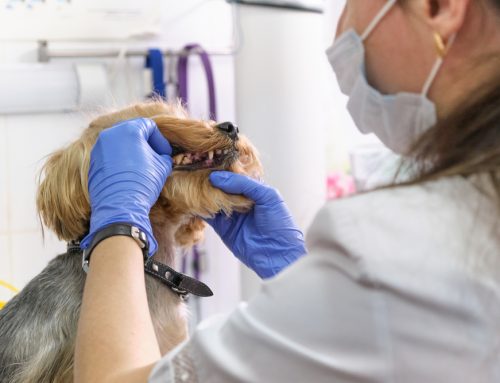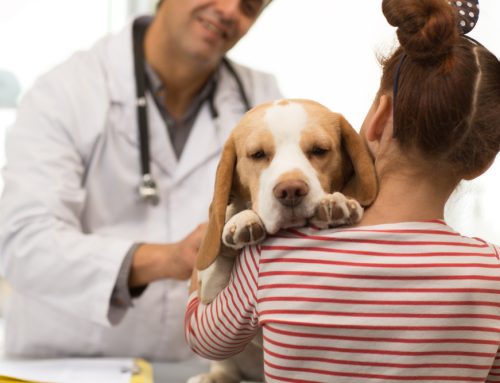Your pet is a cherished family member, and their health and well-being are paramount. As a responsible pet guardian, recognizing when your furry friend needs professional medical attention is crucial to a possible outcome. By being prepared and vigilant, you can recognize your pet’s sometimes subtle physical and behavioral changes. Our Westerville Veterinary Clinic team explains the signs that warrant a veterinary exam.
Your pet has a decreased appetite or has weight fluctuations
If your pet suddenly refuses to eat or shows a decreased interest in food for more than 24 hours, they may have an underlying health issue. If your furry friend has unexplained weight loss or gain, particularly if it has occurred rapidly, they may have metabolic problems, parasites, or other medical conditions.
Your pet has pronounced lethargy
Fatigue or a lack of energy that lasts more than a day can be an illness sign. Lethargy might include sleeping more than usual or being reluctant to engage in activities your pet previously enjoyed. Pronounced fatigue is a definite signal that your pet requires veterinary attention.
Your pet has respiratory issues
Persistent coughing, wheezing, or difficulty breathing can indicate that your pet has a respiratory infection, heart disease, or another severe condition. Rapid or labored breathing is a life-threatening condition and a veterinary emergency that requires immediate attention. If your four-legged friend is experiencing breathing difficulties or a persistent cough, you should seek prompt veterinary care for them with our Westerville veterinarian.
Your pet is vomiting or has diarrhea
Most pets will have an occasional vomiting or diarrhea episode, and typically, it will stop after a day. However, if your pet’s vomiting or diarrhea persists for more than 24 hours or the vomit or stool contains blood or is accompanied by other health issues, seek veterinary care. Straining to defecate or noticeable discomfort while trying to pass stool can indicate that your pet has a blockage or another gastrointestinal (GI) issue.
Your pet is urinating more or straining
Increased urination frequency can be a sign that your pet has a urinary tract infection (UTI), diabetes, or kidney issues. Difficulty or straining to urinate, especially if accompanied by blood, may indicate that your pet has bladder stones or an infection, which is a veterinary emergency.
Your pet has skin or coat changes
If your furry friend is excessively itching, scratching, or licking, they may have an allergy, skin infection, or parasites such as fleas or ticks. Sudden hair loss, bald patches, or changes in their coat’s appearance can indicate that your pet has an underlying health problem. Not only is chronic itching uncomfortable for your pet, the behavior could damage their skin, resulting in wounds and hot spots—raised, moist lesions.
Your pet has behavior changes
Sudden changes in your pet’s behavior, such as increased aggression, anxiety, or withdrawal, can indicate pain, neurologic issues, phobias, and other health conditions. Many pets behave differently as a way to express their discomfort. Additionally, increased barking, whining, or meowing can indicate discomfort, pain, or other health problems. Any changes in your furry pal’s behavior or demeanor warrant a visit to our clinic.
Your pet has eye or ear problems
Red or cloudy eyes, discharge, or squinting can indicate that your pet has an eye infection, glaucoma, or another ocular condition. Our Westerville Veterinary Clinic team should investigate any eye injury your pet sustains to prevent further injury and long-term vision loss. Unusual ear discharge, odor, or frequent head shaking can indicate that your pet has an ear infection or mites.
Your pet appears to be in pain
If your pet reacts in pain when touched or handled, they likely have an injury or internal issue. Injuries, arthritis, or other musculoskeletal problems can cause limping, stiffness, or movement reluctance. Since you don’t want your four-legged friend to remain in pain, seeking veterinary attention is paramount.
Your pet has had a seizure or is uncoordinated

Your pet’s seizure activity, tremors, or unexplained shaking warrants immediate veterinary attention. Sudden incoordination or head tilting can indicate neurologic problems or poisoning, which requires prompt evaluation by our veterinarian.
Being vigilant about your pet’s health and recognizing these signs can help ensure they receive timely veterinary care, potentially saving their life. Annual wellness and preventive care can be instrumental in maintaining your pet’s overall health. Paying attention and acting promptly when you notice changes in your pet can provide them with the best possible care and a healthy, happy life. If your pet is experiencing health changes, contact our Westerville Veterinary Clinic team for an accurate diagnosis and treatment plan.







Leave A Comment